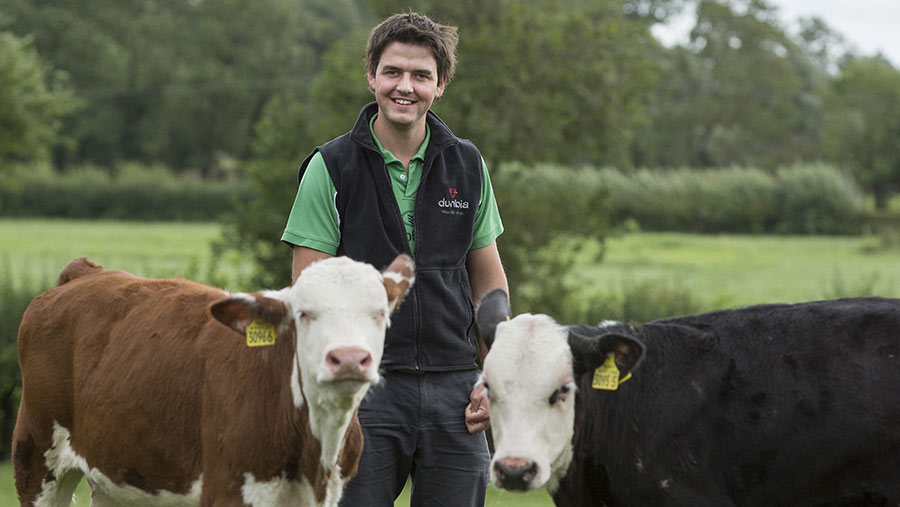Farmer Focus: Calving stress sparks crypto cases
 © Steffan Hill
© Steffan Hill Calving is now in full flow on our farm. Our first heifer calved on 20 February, and we have just over 80 cows calved at this stage.
We have had a bit of trouble this year with calving difficulties and large calves, which has resulted in a few sections, particular on heifers.
Upon investigation, our stabiliser bull appears to be at the harder end of the breed for calving figures. So despite breeding good calves he is going to have to be culled.
See also: Read more from our Livestock Farmer Focus writers
We have had a little trouble with scour in calves this year. Analysis of the scour samples revealed Cryptosporidum. Use of a halofuginone lactate product has worked well as a preventative, but is costly.
A number of years ago we had crypto on our farm, but have not had any difficulties with it again until this year.
See also: Spring calves slowly start to arrive
The last time we had it we also had calving difficulties, and I am now of the opinion that the stress of difficult births on calves causes extra stress leading to immune suppression.
And it is when the calf is weakened that the protozoa are able to attack the calf and cause sickness.
I think it would be naive to think that crypto had left our farm and has returned this year. I believe a healthy thriving unstressed calf would have no problem fighting the crypto bugs naturally.
Soil analysis returned as expected to show we had good levels of potash and phosphate in our soils. With the nature of our business – where we predominately fatten cattle indoors – our slurry is of good nutritional value and therefore good indexes were expected.
A small amount of our fields do require lime, which has been applied.
The pH of the soil is crucial to fertiliser working well and I would encourage all farmers to ensure that pH levels are good. Lime is cheap compared with fertiliser.
Matthew Brownlee farms 121ha alongside his father. They run 100 Limousin cross suckler cows and buy in store cattle to finish.
